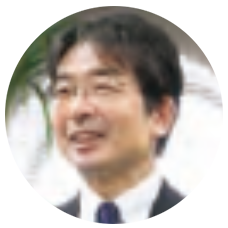
For training next-generation engineers
Significance of Participating in the Amazon Robotics Challenge
About 30 teams from all over the world applied for this year's 16rd Amazon Robotics Challenge, and 2 teams that won the preliminary round gathered in Nagoya, and each of them devised a unique artificial intelligence robot, "Pick. We competed for "task" (the action of taking a product off a shelf and putting it in a box) and "Stow task".From overseas, Massachusetts Institute of Technology, Princeton University, Carnegie Mellon University, University of Bonn, etc. participated, and from Japan, the University of Tokyo, Nara Institute of Science and Technology, Tottori University participated.The results of our team so far are that the 3st American tournament was 30th in the "Pick task" category (at this time, there was no "Stow task" category, and the tournament name was Amazon Picking Challenge).In the second session held in Leipzig, Germany, he was ranked XNUMXth in the "Pick task" category (from this time, the "Stow task" category was also opened).We believe that this competition will have two major benefits in terms of research and education.On the research side, the participating students will develop world-class cutting-edge technologies for artificial intelligence and robots.In order to break into the top ranks in this competition, it is necessary to develop the highest level of advanced artificial intelligence technology at that time, such as object identification using deep learning and XNUMXD object recognition.As a result, these technologies will be summarized in research papers and can be presented at domestic and overseas academic conferences.In terms of education, this tournament has greatly contributed to raising students' motivation and broadening their horizons.More than XNUMX students from our laboratory, including the cheering party, participated in this event and interacted with students from all over the world who are challenging with the same goals.This is a great asset for students who want to become engineers with a global perspective.
Power required for next-generation engineers
There are four forces required of next-generation engineers.The most important of these is the "technical capabilities" of manufacturing, which is one of Japan's strengths.What I would like to emphasize in particular is that now that hardware is made with software and AI and robots are involved in drug discovery, it is important to have the ability to make full use of advanced information technology and system technology to maximize its value. is.In addition, when the system becomes complicated and huge, it is necessary to collaborate horizontally with other companies beyond the team, so in addition to the core elemental technology, the ability to design the entire system ( Grand design ability) is indispensable.
The second is "immediate force".However, this does not mean a narrow meaning of "ready-to-use technology" such as mastering the application, but it is the basis and source of strong confidence that "I can always solve problems" no matter how the world or social situation changes. It is the power to become.Specifically, basic skills such as basic mathematics, physics, and chemistry, basic skills common to all fields and areas such as logic, problem analysis, and reading comprehension / composition, as well as tenacity and concentration. It is a quality like power.
The third is the ability to have a global perspective on the core (inside the mind) and think about everything globally.Now that global management is indispensable not only for major companies in all industries, it is necessary to cultivate a natural sense of value that always looks at the world, no matter what you think, beyond the skill of speaking English. Is important.
Fourth, don't be afraid of the challenge itself.If you don't try, you won't fail, but you won't succeed.If you don't have either experience, you can't expect to grow as an engineer.What the industry wants is not human resources who will not fail, but human resources who will take on challenges. You must realize that "not trying" is giving up the opportunity for growth in exchange for the peace of mind that you will not fail.
Human Resources Development Policy and Initiatives of Faculty of Engineering and Department of Mechanical Systems Engineering / Hashimoto Laboratory
Chukyo University Faculty of Engineering has four departments (Mechanical Systems Engineering, Electrical and Electronic Engineering, Information Engineering, Media Engineering) on the Nagoya Campus, which is positioned as a "Manufacturing Academic Exchange Center", and the Toyota Campus, which is positioned as an "IT Industry-Academia Collaboration Center". With a unique mechanism called W-core cooperation, we aim to "cultivate engineering human resources who can play an active role in the next generation" through the training of immediate fighting ability, adaptability, and basic ability.In a nutshell, the curriculum is characterized by first-year education in which experience-oriented practical subjects and classroom lectures to learn theories that can be applied regardless of field are coordinated, and even earlier laboratory affiliation (from the second half of the second year). It is in "education through daily research activities" by (over 11 years).Chukyo University is a comprehensive university with XNUMX faculties.Using this economies of scale and abundant facilities, you can develop a broad perspective by conducting research in collaboration with students from other faculties and interacting with them on a daily basis.
Based on this blessed environment, our laboratory has established three unique mechanisms to develop human resources who are highly evaluated by companies.
The first is "a mechanism for creating a momentum to challenge things."We have set up many opportunities to receive evaluations from others by taking on challenges such as laboratory-specific contests, joint research with other universities, and off-campus contests.Students gradually learn that challenges may or may not produce good results, there are clear reasons for success and failure, and even if you lose, you can win next if you do your best. You will not be afraid of challenges.
The second is "a mechanism to make you feel the" connection "of the past, present, and future."In the laboratory, we will impose many voluntary tasks from the time when the assignment is decided.By setting an appropriate difficulty level task that suits each student and increasing the chances of looking back, the student will have many opportunities to confirm his / her own growth.As a result, students first begin to be aware that "past behavior and present self" are connected, and become aware of the importance of "effort" (power to make efforts).Eventually, they become convinced that "the current hard work must create the future self" and "don't expect miracles to become the self you want to be".
The third is "a mechanism for having contact with society."In addition to competitions and graduation research like this one, almost all students actively participate in student-centered projects supported by the Faculty of Engineering, presentations at domestic and overseas conferences, and research projects conducted with companies and public institutions. I am.For those who have experience in companies, it is very difficult to raise students only in the small world of university.By touching business people with different values and experiencing the existence of students of the same age at other universities, universities and laboratories are actually just a part of the organization in the wide world. It is necessary to make people aware that it is not too much.Positioning yourself from a broad perspective is essential for engineers in the global era.

Dean
Manabu Hashimoto
Born in Osaka Prefectural Sumiyoshi High School.
Graduated from the Department of Welding Engineering, Faculty of Engineering, Osaka University in 1985.
Completed the Graduate School of Engineering, Osaka University in 1987.
Joined Mitsubishi Electric Corporation in the same year.Worked at the Institute of Industrial Science, Advanced Technology Research Institute.
2008 Professor, Faculty of Information Science and Technology, Chukyo University.
2013 Professor, Faculty of Engineering, Chukyo University. 2017 Dean of Faculty of Engineering, Chukyo University.
Specializes in image information processing and intelligent robotics.

